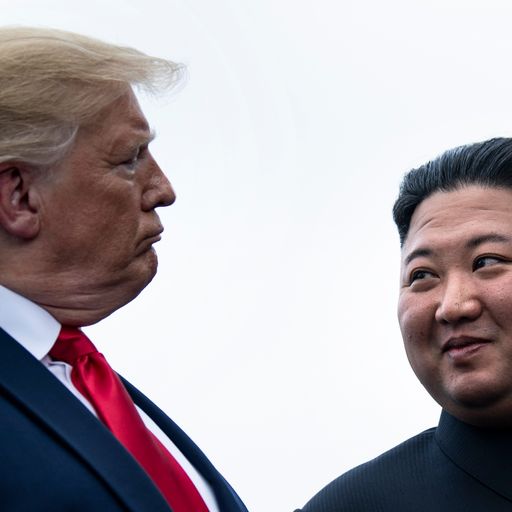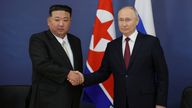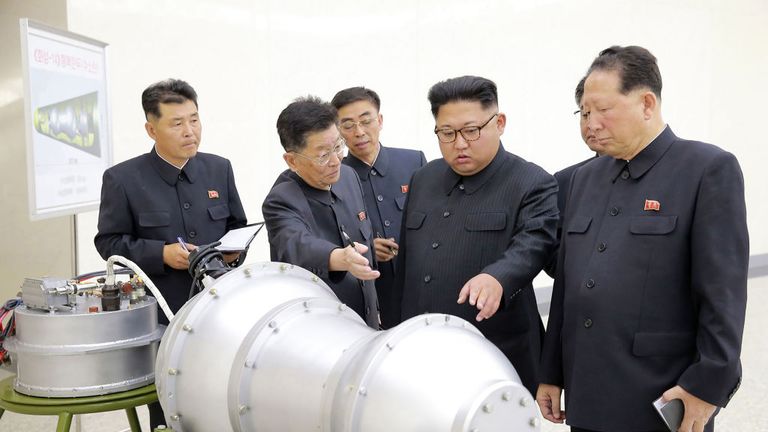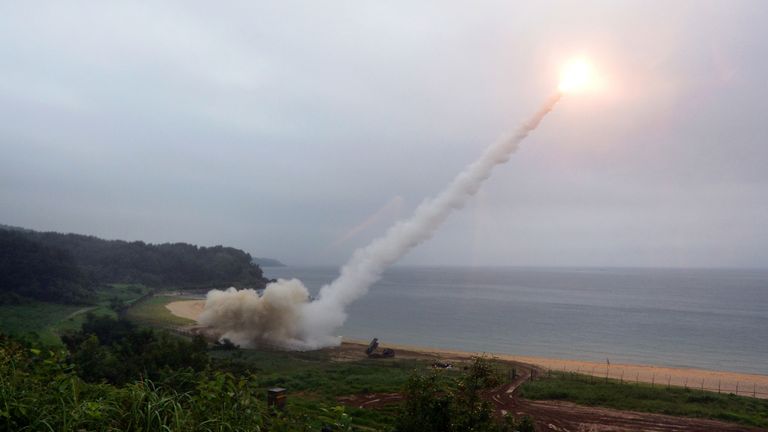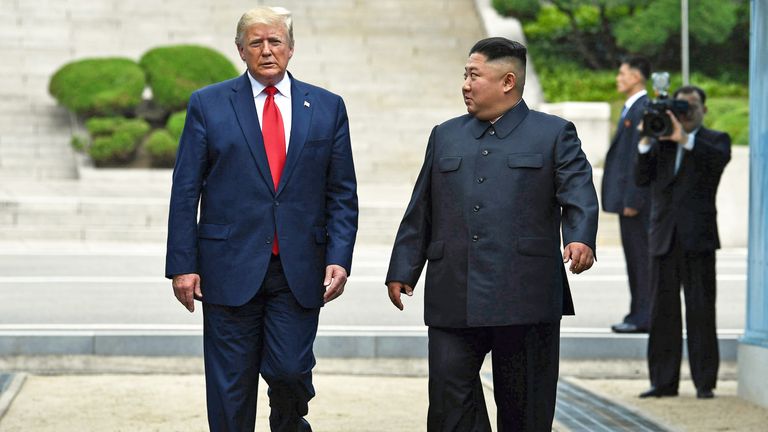Cryptocurrency developer Virgil Griffith arrested 'for helping North Korea evade sanctions'
Griffith accused of providing information to Pyongyang about money laundering and evading sanctions using cryptocurrency.
Tuesday 3 December 2019 10:27, UK
A cryptocurrency researcher has been arrested for allegedly helping the North Korean government use the technology to launder money and evade sanctions designed to restrict its nuclear programme.
Virgil Griffith, 36, attended a conference in Pyongyang in which he gave a presentation on topics that were pre-approved by North Korean officials, according to the US Department of Justice.
Aware of sanctions against the country, Griffith had previously applied to the State Department for permission to attend the conference.
Although this was refused, the legal complaint against him alleges that Griffith attended the conference anyway, travelling via China.
He paid €100 for a visa which he attached to a paper separate from his US passport to avoid creating physical proof that he had been to North Korea.
After he had completed his presentation, titled "Blockchain and Peace", Griffith discussed helping exchange cryptocurrency between North and South Korea, which he acknowledged would be in violation of the sanctions.
The complaint alleges that following the trip he expressed a desire to return to North Korea, and also seek alternate citizenship.
The FBI's assistant director-in-charge William Sweeney said: "There are deliberate reasons sanctions have been levied on North Korea.
"The country and its leader pose a literal threat to our national security and that of our allies," Mr Sweeney added.
"Mr Griffith allegedly travelled to North Korea without permission from the federal government, and with knowledge what he was doing was against the law.
"We cannot allow anyone to evade sanctions, because the consequences of North Korea obtaining funding, technology, and information to further its desire to build nuclear weapons put the world at risk.
"It's even more egregious that a US citizen allegedly chose to aid our adversary."
Pyongyang has consistently launched missiles into the seas neighbouring it - most recently near a disputed sea boundary on Friday - following a detente in negotiations between leader Kim Jong Un and US President Donald Trump.
Analysts claim these missiles are an attempt by North Korea to pressure the US to make concessions in their stalemate over the country's nuclear ambitions.
International sanctions have severely hampered Pyongyang's ability to access international financial systems and markets, driving the government's embrace of illicit forms of generating income, prominently including cyber heists.
North Korean cryptocurrency activities have grown since 2017 when the UN passed its most recent sanctions following the country testing intercontinental ballistic missiles.
Pyongyang's holdings of cryptocurrencies could now be as high as $735m (£561m), depending on valuation, according to the Royal United Services Institute, but they could be much lower.
:: Listen to the Behind the Headline podcast on Apple Podcasts, Google Podcasts, Spotify, Spreaker
Among the criminal activities which the state has engaged in around cryptocurrencies have been the financially-motivated ransomware attack which hit the NHS in 2017, as well as using cyber attacks to steal millions from cryptocurrency exchanges.
An elite hacking unit based in the country is perhaps the only state-sponsored group in the world which has a financially-motivated mission, rather than being focused on collecting intelligence for national security purposes.
Its operations began in February 2014 according to cyber security firm FireEye, "and were likely influenced by financial sanctions enacted in March 2013 that blocked bulk cash transfers and restricted North Korea's access to international banking systems".
North Korea has historically manufactured drugs, counterfeit currency and engaged in smuggling to keep its economy afloat, and FireEye describes the hacking as a similar form of activity.
A secretive agency known informally as Office 39 has been a critical asset of the state by generating black market revenues since at least the 1970s.
It is estimated to bring $1bn a year through illicit activities, including counterfeiting US dollar currency, producing narcotics, and even smuggling gold.


